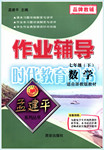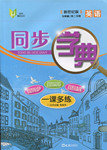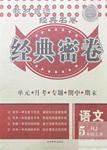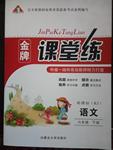题目内容
The happiest of people don’t have the best of everything; they just make the most of everything that comes along their way.
A.necessarily B.simply C.actually D.normally
A

 作业辅导系列答案
作业辅导系列答案 同步学典一课多练系列答案
同步学典一课多练系列答案 经典密卷系列答案
经典密卷系列答案 金牌课堂练系列答案
金牌课堂练系列答案It was graduation day at  the university where I work and a beautiful day quite unlike the first graduation I attended as a young professor. On that cold day years ago, as we watched the students walking into the hall, one of my colleagues turned to me and said, "Graduation will be one of the happiest and one of the saddest time of your life." At my inquiry, he answered, "Because the students you have gotten to know have to leave."
the university where I work and a beautiful day quite unlike the first graduation I attended as a young professor. On that cold day years ago, as we watched the students walking into the hall, one of my colleagues turned to me and said, "Graduation will be one of the happiest and one of the saddest time of your life." At my inquiry, he answered, "Because the students you have gotten to know have to leave."
As years went by, my previous confusion about my colleague's words no longer existed. When I came across naughty students, I have had to rethink why I chose to be a teacher. It obviously isn't the money. Once a former computer science student of mine called me, asking me if I wanted to have a change. He was working at Nintendo Corporation. His salary was higher than my current one, though I have more education and have worked for over a decade. With my programming skills, he said he could get me hired. I thanked him, but declined his kind offer.
A few days before this current graduation, while working on final grades, I found a note a student  had slipped in with her homework. She thanked me for being her teacher and said the things she had learned in my class — not about math, but about life — would be things she would remember long after the math skills had faded away. As I finished reading, I remembered why I had become a teacher.
had slipped in with her homework. She thanked me for being her teacher and said the things she had learned in my class — not about math, but about life — would be things she would remember long after the math skills had faded away. As I finished reading, I remembered why I had become a teacher.
Now, on this sunny graduation day, as I again observed the sea of blue hats and gowns, I did so with renewed dedication (奉献) and a deeper sense of satisfaction — I will always be grateful that I am a teacher.
【小题1】Hearing his colleague's description of graduation for the first time, the author .
| A.quite agreed with his colleague | B.thought it very funny |
| C.was very puzzled | D.was very sad. |
| A.wanted to inform the author of his present job |
| B.tried to persuade the author to work with him |
| C.wanted the author to share his joy and satisfaction |
| D.thought the author wasn't fit to be a teacher |
| A.university colleagues | B.life memories |
| C.graduates' clothes | D.decorations in the hall |
| A.express his devotion to being a teacher |
| B.compare two different graduation ceremonies |
| C.talk about the meaning of graduation |
| D.give advice on how to be a good teacher |
| A.he was only a young professor |
| B.he didn't do well in his work |
| C.he taught his students more about life than math |
| D.salaries for different careers are different |
How often one hears children wishing they were grown-ups and old people wishing they were young again. Each age has its pleasures and its pains, and the happiest person is the one who enjoys what each age gives him without wasting his time in useless regrets.
Childhood is a time when there are few responsibilities to make life difficult. If a child has good parents, he is fed, looked after and loved, whatever he may do. It is impossible that he will ever again in his life be given so much without having to do anything in return. In addition, life is always presenting new things to the child — things that have lost their interest for older people because they are too well-known. But a child has his parents. He is not so free to do what he wishes to do; he is continually being told not to do things or being punished for what he has done wrong.
When the young man starts to earn his own living, he can no longer expect others to pay for his food, his clothes, and his room, but has to work if he wants to live comfortably. If he spends most of his time playing about in the way that he used to as a child, he will go hungry. And if he breaks the laws of society as he used to break the laws of his parents, he may go to prison. If, however, he works hard, keeps out of trouble and has good health, he can have the great happiness of building up for himself his own position in society.
1. According to the second paragraph, the writer thinks that __________.
|
A.if much is given to a child, he must do something in return |
|
B.a child is always loved whatever he does |
|
C.life for a child is comparatively easy |
|
D.only children are interested in life |
2. After a child grows up, he __________.
|
A.will have little time playing |
|
B.has to be successful in finding a job |
|
C.can still ask for help in time of trouble |
|
D.should be able to take care of himself |
3. Which of the following statements is NOT true according to the passage?
|
A.Life is less interesting for old people. |
|
B.People are often satisfied with their life. |
|
C.Adults are free to do what they want to do. |
|
D.Adults should no longer rely on others. |
4.The underlined word "responsibilities" in the second paragraph means __________.
|
A.jobs |
B.duties |
C.suggestions |
D.desires |
5. The main idea of the passage is __________.
|
A.life is not enjoyable since each age has some pains |
|
B.young men can have the greatest happiness if they work hard |
|
C.childhood is the most enjoyable time in one's life |
|
D.one is the happiest if he can make good use of each age in his life |